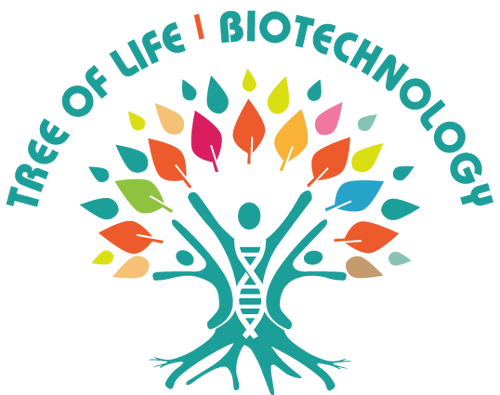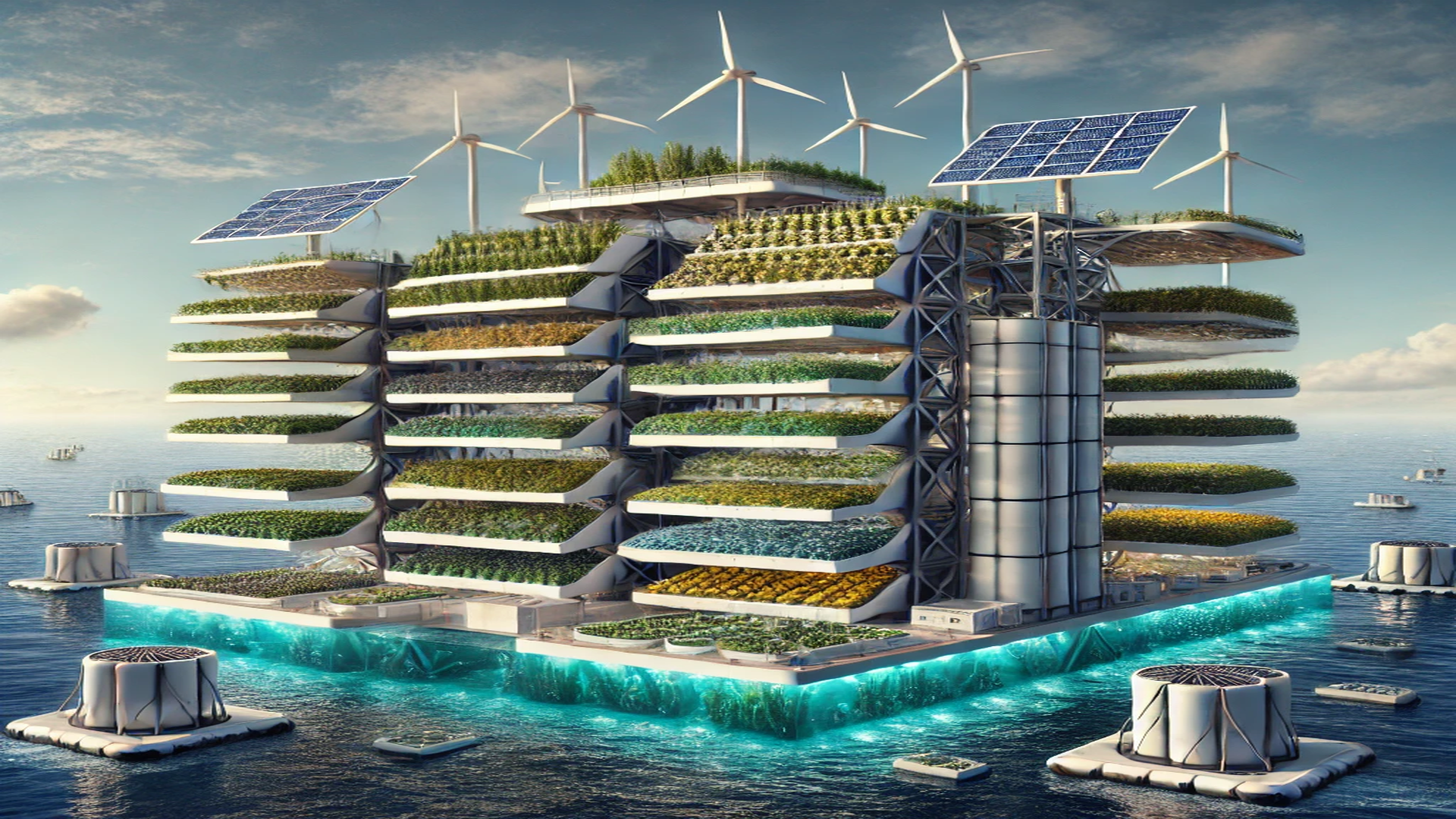Quantum Biology & Biochar - The Future of Sustainable Innovation

In an era defined by the urgency of climate change, the depletion of natural resources, and the need for sustainable energy solutions, cutting-edge science is emerging as the key to building a greener, more resilient future. At TOL Biotech, we are leading the charge by merging two groundbreaking areas of research: quantum biology and premium engineered biochar. Together, they offer unparalleled opportunities for transforming the way we approach energy, industry, and environmental preservation.
Our latest research pushes the boundaries of what is possible, demonstrating how harnessing quantum processes in nature - coupled with biochar’s unique properties - can revolutionise technologies across multiple sectors, from renewable energy and green chemistry to carbon capture and precision environmental monitoring.
Quantum Biology - Nature’s Hidden Power
Quantum biology represents one of the most exciting frontiers of modern science. This field explores how quantum mechanical phenomena, such as quantum coherence and quantum tunneling, enable biological systems to achieve efficiencies far beyond what classical physics would predict. These processes are fundamental to life on Earth, playing critical roles in photosynthesis, enzyme catalysis, and even animal navigation.
One of the most compelling examples is quantum coherence in photosynthesis, where excitons (quasi-particles) explore multiple energy transfer pathways simultaneously. This phenomenon allows plants to convert sunlight into usable energy with near-perfect efficiency. By simulating these processes using AI-driven models, we’ve uncovered groundbreaking insights into how quantum effects can be replicated in artificial photosynthetic systems. Our research shows that these systems can improve energy transfer by up to 40%, offering enormous potential for enhancing renewable energy technologies.
At the same time, quantum tunneling, a process by which particles bypass classical energy barriers, plays a pivotal role in enzyme catalysis, allowing chemical reactions to occur at speeds unimaginable through traditional chemistry. In our experiments, quantum tunneling mechanisms have been shown to enhance reaction rates by 300%, reducing the energy requirements for industrial processes and providing a pathway for more sustainable manufacturing practices.
Biochar - Amplifying Quantum Efficiencies & Sequestering Carbon
While quantum biology provides the theoretical framework for these breakthroughs, it is the integration of premium engineered biochar that truly accelerates their practical application. Biochar, a carbon-rich material produced through the pyrolysis of organic waste, is known for its high surface area, porosity, and carbon retention capabilities. It not only enhances the efficiency of quantum biological processes but also contributes significantly to carbon sequestration, positioning it as a critical component in the global fight against climate change.
In artificial photosynthetic systems, biochar acts as a stabilising substrate, increasing coherence durations and enabling more efficient energy transfer. AI simulations have shown that integrating biochar can raise energy transfer efficiency in photosynthetic systems to as high as 95%, while also improving nutrient retention and supporting beneficial microbial communities. This dual benefit of boosting efficiency while promoting ecological resilience makes biochar a game changer for sustainable agriculture and energy technologies.
Moreover, biochar’s structural integrity enhances quantum tunneling in enzyme catalysis, leading to faster reaction rates and extended catalyst lifespans. This has enormous implications for green chemistry, where industrial processes can be made far more efficient, reducing both energy consumption and the environmental footprint of manufacturing. By mimicking nature’s quantum efficiencies and stabilising them with biochar, we can create systems that are not only more productive but also more sustainable.
Carbon Sequestration - A Crucial Contribution to Climate Action
Biochar’s role extends beyond enhancing quantum biological processes; it is also a powerful tool for carbon sequestration. As a stable form of carbon, biochar can lock away atmospheric CO₂ for centuries, making it an essential component of any carbon capture strategy. Our research has shown that biochar can sequester up to 20 kg of CO₂ per hectare, contributing significantly to global carbon reduction efforts.
This ability to trap carbon and integrate seamlessly into soil ecosystems provides a scalable solution for agriculture, urban greening, and industrial land management. By combining biochar with quantum-enhanced systems, we can simultaneously drive technological innovation and combat the escalating threat of climate change.
Quantum Sensors - A Leap in Environmental Monitoring
In addition to its applications in energy and industrial processes, biochar plays a vital role in advancing quantum sensing technologies. These sensors, inspired by the quantum coherence mechanisms found in animal navigation, offer unparalleled precision in fields such as environmental monitoring, geospatial navigation, and even biomedical imaging. When enhanced with biochar, these sensors exhibit up to 5 to 10 times greater sensitivity, making them ideal for detecting minute changes in environmental conditions or biological systems.
This innovation could revolutionise environmental monitoring, allowing for more accurate tracking of air quality, soil health, and water contamination. Quantum-enhanced sensors could also support precision agriculture, providing farmers with real-time data to optimise crop yields while minimising environmental impact.
The Future of Sustainable Technologies
The fusion of quantum biology and biochar presents a unique opportunity to develop technologies that not only operate more efficiently but also contribute positively to the environment. By unlocking the hidden potential of quantum processes in nature and amplifying them with biochar, we are paving the way for a new era of sustainable innovation.
At TOL Biotech, we are committed to advancing this research and applying it to real-world challenges. The potential impact is vast:-
- Energy systems with quantum-enhanced efficiency could significantly reduce our reliance on fossil fuels.
- Industrial processes that leverage quantum tunneling could cut energy consumption by up to 300%, driving down costs and emissions.
- Carbon sequestration through biochar offers a scalable solution for mitigating climate change.
- Quantum sensors with biochar augmentation could transform environmental monitoring, leading to smarter, more sustainable urban planning and agriculture.
These advancements represent the future of sustainability - where science, technology, and nature converge to create solutions that are both innovative and ecologically responsible. At TOL Biotech, we believe that by continuing to explore the intersection of quantum mechanics and sustainable materials, we can contribute to a brighter, greener future for all.
Join Us in Building a Sustainable Future
The work we’re doing at TOL Biotech is just the beginning. As we continue to push the boundaries of what’s possible in quantum biology and biochar integration, we invite governments, corporations, and communities to collaborate with us in scaling these solutions globally. Together, we can drive the innovation needed to meet the most pressing challenges of our time.
Let’s make the future quantum-powered, biochar-enhanced, and sustainable.
To read our research paper pertinent to this blog please visit https://ijournals.in/wp-content/uploads/2024/10/5.IJSRC-121012-Reji.pdf





